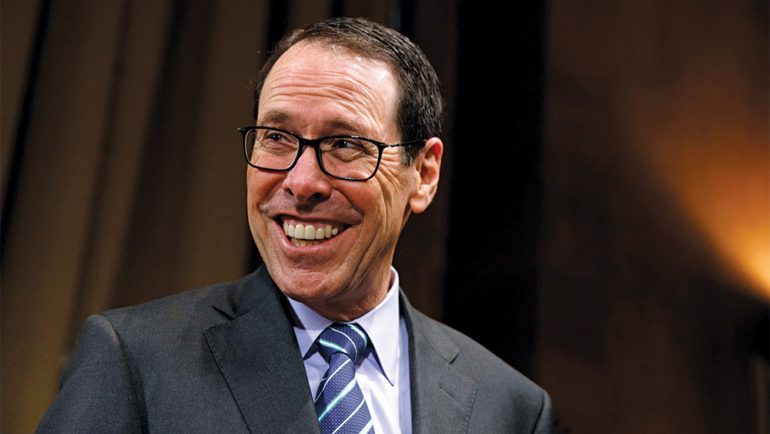Does the Government Stand a Chance in AT&T-Time Warner Merger Case?
By Ted Johnson
LOS ANGELES (Variety.com) – When a three-judge panel hears oral arguments on Dec. 6 in the Justice Department’s appeal of the antitrust decision, the takeaway from the hearing most likely will be: Does the government even stand a chance? This despite a subsequent wrinkle in the subscription-TV marketplace that the DOJ says confirms its claims of the merger’s harm.
U.S. District Judge Richard Leon’s 172-page decision in favor of AT&T rejected all of the government’s arguments, in an opinion so definitive that it raised doubts the would even bother with an appeal.
But the DOJ’s Antitrust Division did just that, and it recently seized on the unprecedented blackout of WarnerMedia’s HBO on satcaster Dish Network, which started on Nov. 1. WarnerMedia is the new name AT&T gave to Time Warner, which it owns, pending the appeal.
The government says the blackout is “consistent” with what it predicted would happen from the merger of AT&T and : that the combined company would have increased leverage over rivals, and that the threat of a blackout would ultimately be to the benefit of AT&T subsidiary DirecTV, a competitor to Dish. The dispute revolves around the amount of the typical per-subscriber fee that Dish must pay WarnerMedia for the right to carry HBO.
During the hearing, the government may bring up the blackout to help frame its argument, but the appellate judges are limited in how they can use such information. They must make their decision based on evidence presented in the trial, not what happened afterward. It’s possible that the blackout could be considered if the case is sent back to a lower court.
That’s a big if.
WarnerMedia believes the blackout of HBO on Dish is connected to the satcaster’s ongoing “collaboration” with the government during the antitrust trial. “That collaboration continues to this day, with Dish’s tactical decision to drop HBO, not the other way around,” a company spokesman said. Dish said that HBO pulled its channels and, under owner AT&T, is making “untenable” demands for subscriber fees.
Ultimately, with the two sides failing to reach an agreement on the extent of the fees, the contract between them lapsed.
Craig Moffett, partner in the analyst firm MoffettNathanson, says that “the fact that HBO has gone dark on DirecTV’s closest competitor, Dish Network, certainly bolsters the DOJ’s argument that Judge Leon erred by assuming AT&T wouldn’t try to profit-maximize by withholding content from competitors.” He, too, doubts its applicability to an appeal. “The odds seem pretty well stacked in AT&T’s favor,” he said.
Others, however, believe that the government has a good shot at making the case that Leon applied the law incorrectly.
Gigi Sohn, a fellow at the Georgetown Law Institute for Technology & Policy, noted that the panel consists of Judith Rogers, a Clinton appointee; Robert L. Wilkins, an Obama appointee; and David Sentelle, a Reagan appointee. “I think it is about as good as you are going to get in the D.C. Circuit for a case of this kind,” she says, referring to the ideological roots of the two judges appointed by Democrats.
“[The government argues that] if a court misapplies the principles of economics, that kind of error has the same kind of gravity as making an error about the law.”
Henry Su, Constantine Cannon
One of the Justice Department’s central arguments is that Leon ignored the “economics of bargaining,” and that he “illogically and erroneously concluded” that the merger would not give WarnerMedia more leverage in maintaining that blackouts are “infeasible.”
The DOJ also said that Leon failed to apply an established principle of corporate and antitrust law — that of corporate-wide profit maximization. In other words, that AT&T naturally would operate WarnerMedia and DirecTV in a way that boosts the bottom line of the overall corporation.
Henry Su, partner at the law firm of Constantine Cannon, says the government would be hard-pressed to prevail, but that its position has precedent: The argument that “if a court misapplies the principles of economics, that kind of error has the same kind of gravity as making an error about the law” has seen other decisions overturned by other appeals courts.
At least publicly, AT&T executives aren’t worried about the appeal. CEO Randall Stephenson said that his team was spending “zero effort” thinking about it, while its attorneys argue that Leon “well understood” bargaining theory and correctly found fault with the economic model the government used to predict the merger would lead to an increase in consumer prices.
Larry Downes, senior industry and innovation fellow at the Georgetown Center for Business and Public Policy, says that the appellate judges would need to find that Leon’s weighing of the evidence was “so incomplete that it overcomes the strong deference to which it is entitled under even more firmly established appellate law.”
“None of those findings seems likely,” he added, calling Leon’s opinion “thorough and reasonable.”
The DOJ and AT&T already made an agreement to keep Turner’s assets separate unit until Feb. 28, so as to limit impact should the government prevail. That still seems like a long shot, but in the twists and turns of this case, it can’t be ruled out.

